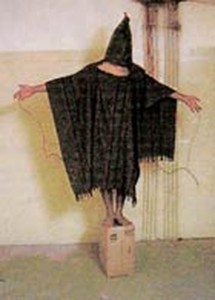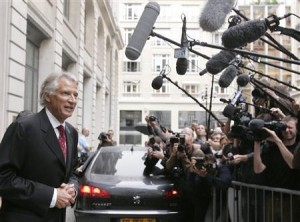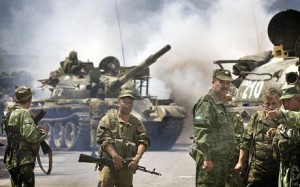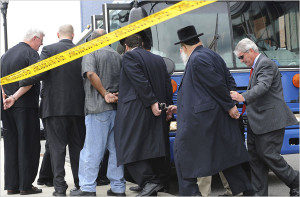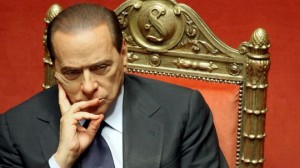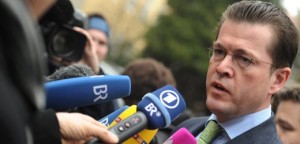By Anonymous
Staff Writer
As UCR has grown, many global developments around the world have regressed. With newspapers on the hunt for scandal, it is not surprising that such events are always gracing the headlines. Each year, there is a standout scandal that rocked the world with shocking, often detailed, reports. With the many choice fruits to pick from, we present you the top political scandal from each year in the past decade.
2004: The Abu Ghraib prison scandal followed photographs of abused Iraqi prisoners (and their corpses) being leaked, which led to an investigation by the U.S. government. This revealed that U.S. soldiers had systematically tortured and raped prisoners, leading to a public outcry so huge that George W. Bush filed a public apology to King Abdullah II, and dismissed the eleven soldiers that were involved.
2005: The Brazilian Mensalao scandal caught world-wide attention the following year. Mensalao, roughly translated means “big monthly payment”, was a corruption case in which members of the ruling party paid bribes to Congressmen in order to facilitate the enactment of the party’s legislation – the money that had been used, of course, came from public funds.
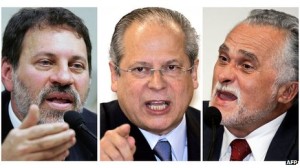 2006: Next, we have another scandal from Latin America, this time Colombia, that involved several congressmen and ministers using public funds to finance the paramilitary group, United Self-Defense Forces of Colombia, or AUC, which had been attributed with a massacre that occurred in 2000 (next to making a fortune off drug trafficking and terrorizing citizens). Ultimately, 37 congressmen and 5 governors have been convicted for involvement.
2006: Next, we have another scandal from Latin America, this time Colombia, that involved several congressmen and ministers using public funds to finance the paramilitary group, United Self-Defense Forces of Colombia, or AUC, which had been attributed with a massacre that occurred in 2000 (next to making a fortune off drug trafficking and terrorizing citizens). Ultimately, 37 congressmen and 5 governors have been convicted for involvement.
2007: Just before the presidential elections in France, an anonymous document containing information about 895 bank accounts held by French personalities and politicians, among them Nicolas Sarkozy (a presidential candidate at the time), caused outcry across France. The document turned out to be a fake, and it turned out that Sarkozy’s political rival, Dominique de Villepin, knew about both the document and its falseness for a long time. De Villepin was ultimately convicted of complicity to false denunciations.
2008: In August of 2008, a conflict between Russia and Georgia broke out, which was later called the South Ossetia or Five-Day War. To summarize the entire conflict, an entire newspaper would be necessary, but to put it simply, it started when Georgia launched a military offensive against the separatist region of South Ossetia (with a large Russian population), to which Russia reacted by sending troops into South Ossetia and later occupying several regions in Georgia. After international mediation, a ceasefire agreement was signed, and a few weeks later both Russian and Georgian troops retreated – nevertheless, tensions are still running high and the conflict is far from over.
2009: This time we go back to the American continent, to be precise to the US state of New Jersey, where in July 2009 about forty-four individuals, among them three mayors, two assemblymen and five rabbis, were arrested for suspected charges of money laundering and bribery – twelve of them have been sentenced guilty so far. Sopranos, anyone?
2010: Next we have one of Berlusconi’s most discussed escapades, Rubygate. Berlusconi was accused of having paid the then underage Karima el-Mahroug for sex, and having organized the now infamous “bunga bunga” parties in his private residence. Both denied sexual involvement, nevertheless Berlusconi was found guilty of prostitution of minors and abuse of power. However, he has appealed the verdict, and during the trial still managed to run for public office.
2011: Our next scandal, this time from Germany, is of a more academic nature. Karl Theodor zu Guttenberg, who was minister of defense at the time, was accused of plagiarizing parts of his doctoral thesis, without any reference, which he denied in the beginning. In the end it turned out that he hadn’t even written the thesis himself, but had hired a ghostwriter. A year later the minister of education, Annette Schavan, was also stripped of her doctor’s degree for having plagiarized his – oh the irony.
2012: Even though the British phone hacking scandal reaches back as far as 2005, this scandal blew up in 2012. Illegal hacking of several celebrities and families of murder victims phones by publishing company News International was discovered, and in the end, eight employees of News International were charged with police bribery, conspiring to intercept communications and other charges related to hacking phones. Some relevant trials are still ongoing.
2013: Just when you thought that the scandal involving phone hacking and invasion of privacy had faded away, Edward Snowden set this bomb off. In June 2013, the former member of the National Security Agency (NSA) leaked classified documents regarding the collection of data from mobile phones and international companies, such as Apple and Google, meaning that the digital surveillance far surpassed American borders. Foreign government officials were not blameless, as those at the G20 summit in 2009, the EU, the UN, and the International Atomic Energy Agency, worked together with other intelligence agencies around the world to collect data. To complete this big circle of surveillance, the NSA was also spying on many foreign officials, leading to international outrage all around.
2014: The major political event of the year so far has to be the developments in Ukraine. With the escalation of the situation in Crimea, a part of territorial Ukraine, following the ousting of the pro-Russian government, the situation is volatile. As of now, Putin has sent troops to Crimea to “protect” ethnic Russians and Russia’s naval interest. This issue will inevitably be discussed in depth in a future edition of Tabula Rasa, but for now the potential for scandal is very high indeed, as 2014 has just begun.

